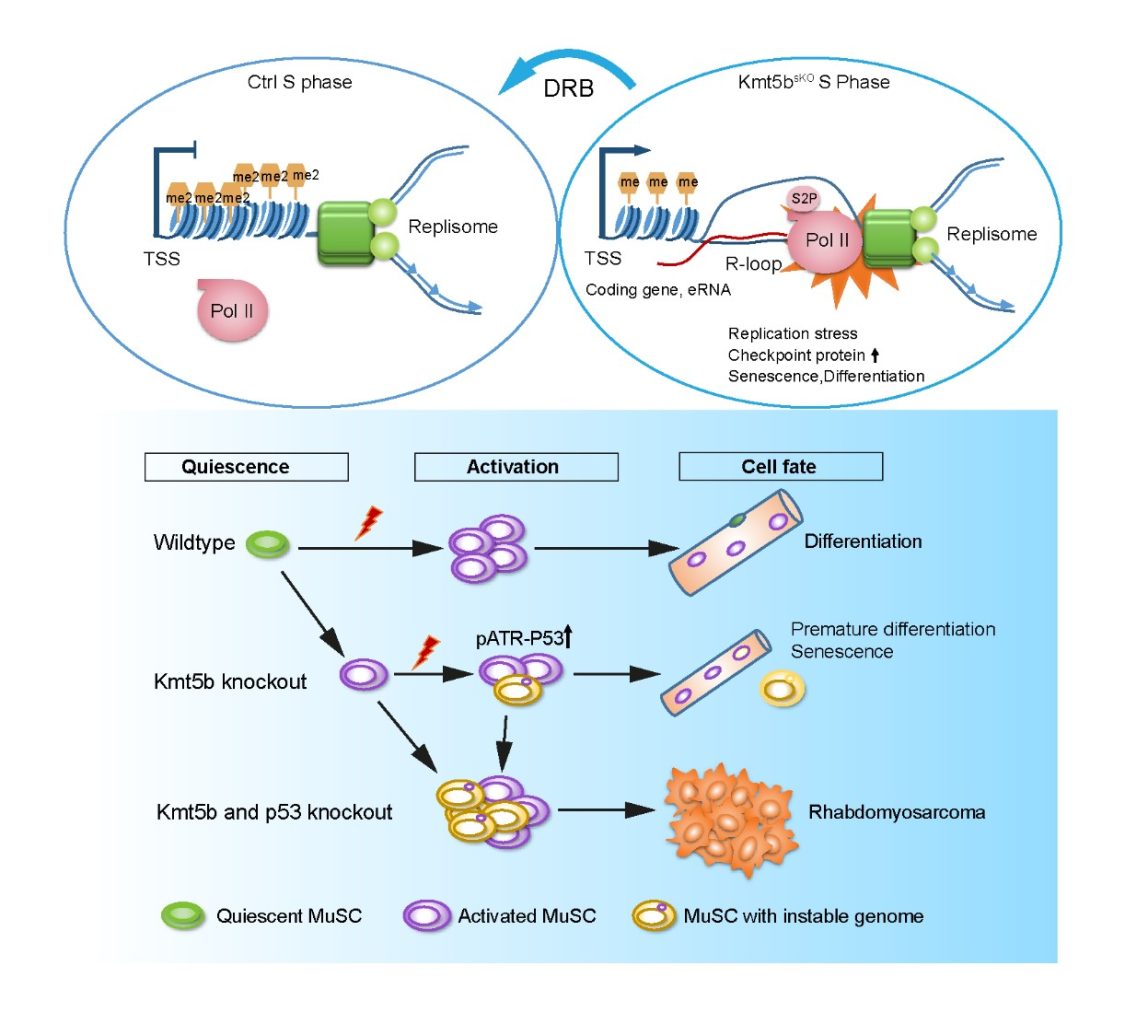November 2022
nature communications
Replication collisions induced by de-repressed S-phase transcription are connected with malignant transformation of adult stem cells
Ting Zhang, Carsten Künne, Dong Ding, Stefan Günther, Xinyue Guo, Yonggang Zhou, Xuejun Yuan & Thomas Braun
Transcription replication collisions (TRCs) constitute a major intrinsic source of genome instability but conclusive evidence for a causal role of TRCs in tumor initiation is missing. We discover that lack of the H4K20-dimethyltransferase KMT5B (also known as SUV4-20H1) in muscle stem cells de-represses S-phase transcription by increasing H4K20me1 levels, which induces TRCs and aberrant R-loops in oncogenic genes. The resulting replication stress and aberrant mitosis activate ATR-RPA32-P53 signaling, promoting cellular senescence, which turns into rapid rhabdomyosarcoma formation when p53 is absent. Inhibition of S-phase transcription ameliorates TRCs and formation of R-loops in Kmt5b-deficient MuSCs, validating the crucial role of H4K20me1-dependent, tightly controlled S-phase transcription for preventing collision errors. Low KMT5B expression is prevalent in human sarcomas and associated with tumor recurrence, suggesting a common function of KMT5B in sarcoma formation. The study uncovers decisive functions of KMT5B for maintaining genome stability by repressing S-phase transcription via control of H4K20me1 levels.
